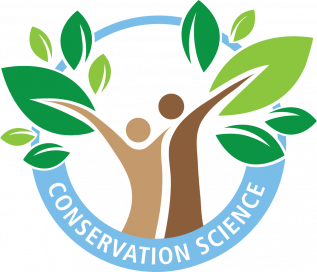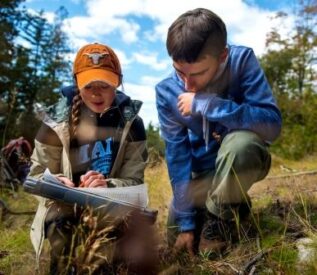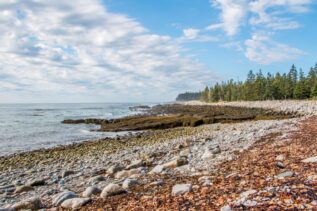NRT Program Requirements

As an NRT trainee, you will complete a program of collaborative, solutions-driven research, professional development, and coursework that integrates biophysical and socioeconomic sciences. Completion of the program leads to the graduate specialization in Conservation Science, the first of its kind at UMaine. The NRT program is not linked to any particular department and, hence, is completed in addition to the requirements outlined for your graduate degree (e.g., MS, MA, PhD) in your home department (e.g., Communication and Journalism, School of Forest Resources, Ecology and Environmental Science, Department of Wildlife, Fisheries and Conservation Biology).
The program will train you as part of the next generation of transdisciplinary conservation scientists. We define transdisciplinarity as an approach that brings together scientists from unrelated disciplines and non-academic partners to collaboratively address a problem while creating new knowledge, solutions, methods, and theories (Frescoln et al 2015). This collaborative approach will help prepare you to address the challenges presented by global and local changes in environmental, social, economic, and climatic conditions.
Please visit the Application Process page for details on how to apply.
Requirements for NRT Trainees
Required courses (around 13 credits)
Completion of the courses below is required for the NRT program and will lead to a specialization in Conservation Science.
-
- EES 590 Special Topics in EES—Resilience Theory and Practice (2 cr)
- EES 598 Special Seminar in EES—Transdisciplinary Research Seminar 1 (2 cr)
- EES 598 Special Seminar in EES—Transdisciplinary Research Seminar 2 (2 cr)
- EES 595 Professional Experience in Ecology & Environmental Science (2 cr) or CMJ 695 Internship (2 cr)
- EES 598 Special Seminar in EES— Communication and Facilitation for Effective and Inclusive Conservation Efforts (2 cr) or communication substitution
- One analytic elective
Internships
You will complete an internship designed to provide direct experience in the workings of public or nonprofit organizations focused on conservation planning, management, and policy making that would benefit from implementing solutions based on your career and research interests. You will develop your own internship plan tailored to your career goals and desired skills as well as the needs of the host organization.
Annual Retreats
Annual retreats generally occur during the fall semester and provide an opportunity for NRT faculty, trainees, and conservation partners to meet.
Self-assessments
Trainees complete annual self-assessments to reflect on their experiences, performance, and progression through their degree. Responses, which are shared with faculty mentors, assist in mentoring trainee progress in developing the academic and professional skills that are the focus of the NRT program.
Reflective Journals
As part of the process of improving the NRT and having students reflect on their learning process, we ask trainees to keep a reflective journal and submit a summary of their thoughts every other month. Trainees receiving NRT fellowships are required to submit these summaries, and all other trainees are strongly encouraged to submit theirs as well.


